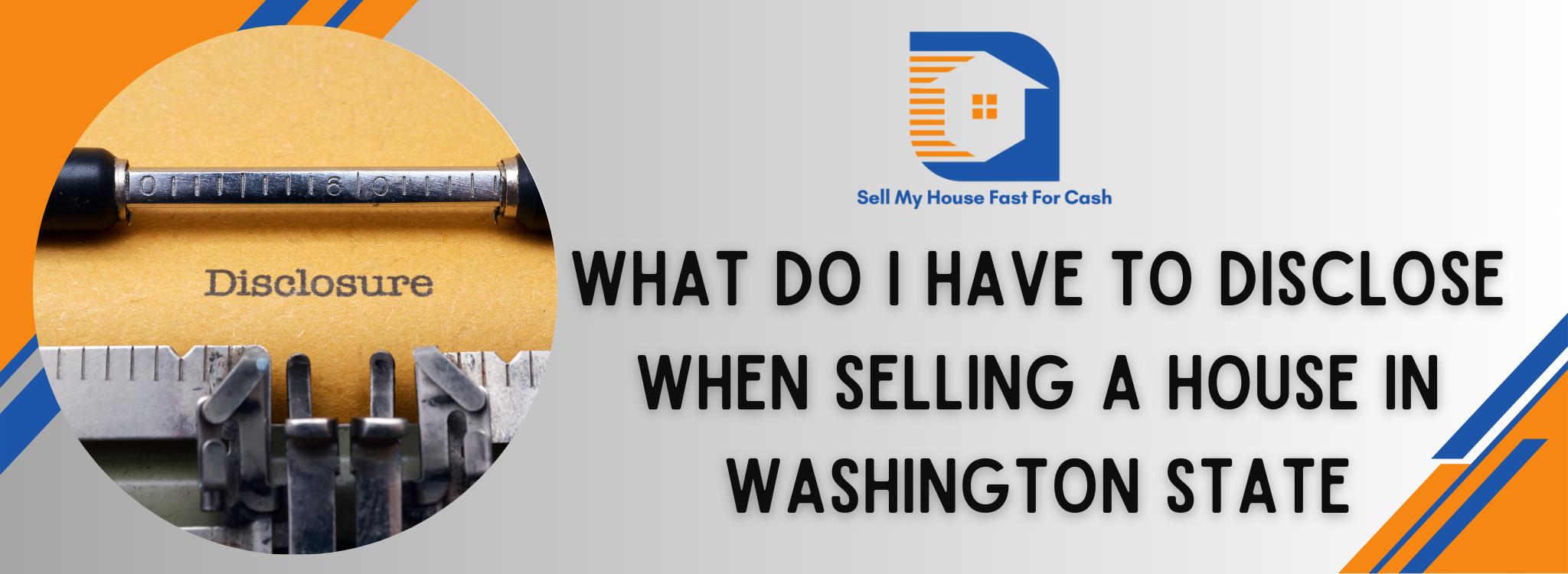
Washington State Real Estate: What Sellers Need to Disclose When Selling a Home
Selling a house in Washington State is complicated and requires important seller disclosure obligations. A seller must know what to disclose to buyers to comply with laws and ensure a smooth transaction. Seller disclosure is when a seller informs the buyer about any known issues with their home. RCW regulates the seller disclosure statement requirement in Washington State, the Revised Code of Washington. Except in certain cases, the RCW requires sellers to disclose factors affecting the house and its condition.
Property infrastructure defects like plumbing, electrical, roofing, and foundation integrity are usually disclosed. The seller must disclose any legal encumbrances on the property, such as easements or boundary disputes. Understand these seller disclosure responsibilities to avoid legal issues and build buyer trust when selling a home. Washington takes these requirements seriously, emphasizing real estate transaction transparency. Thus, sellers should carefully review the seller disclosure statement to ensure it accurately describes the property.
Sellers must also disclose environmental factors like hazardous substances. This information is required by law and ethical selling. Selling a house requires sellers to understand that these disclosures promote transparency between buyer and seller, which is especially important when selling homes with code issues, and helps improve results.
Remembering these obligations is crucial when selling an estate or family home. Proper seller disclosure is not just a matter of meeting state regulations; it helps ensure a trustworthy and efficient real estate transaction in Washington State.
Understanding Seller Disclosure Form and Property Obligations in Washington
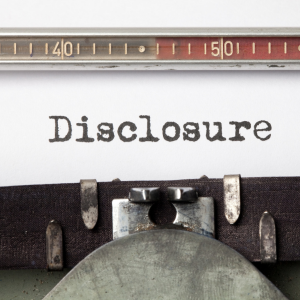
Sellers in Washington state must comprehend the seller disclosure statement. Know the legal requirements for property disclosures when selling a home in Washington. A crucial part of selling is the seller disclosure form, or Form 17. It outlines what sellers must disclose about the property to inform buyers of potential issues or obligations. Sellers must provide accurate property condition information by state law, boosting transparency and trust. Seller disclosure statements address environmental, structural, and legal issues related to the property. Disclosures are mandatory and recommended to protect sellers and buyers from legal issues.
Washington sellers must comprehend that seller disclosure is mandatory. Legal consequences can result from an incomplete seller disclosure statement. Sharing important home details protects everyone’s rights under the law. Property disclosures must detail the property’s complex legal, environmental, and physical attributes, not just the transaction. This emphasizes seller transparency and their legal obligation. Washington state regulations are followed in the seller disclosure statement and its required information, reducing litigation risk. Washington state requires sellers to disclose property defects and legal issues. Seller disclosure ensures home sale integrity and legal credibility, promoting peace of mind for sellers and buyers and maintaining a clear legal standing. The state has established guidelines to help sellers comply with their disclosure requirements.
Which Washington State Sellers Must Provide a Disclosure Statement?
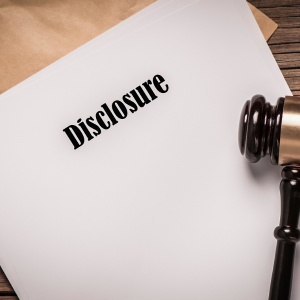
Washington State sellers must follow seller disclosure statement regulations when selling a home. This rule requires sellers to disclose the property’s condition to buyers. Washington State requires seller disclosure statements for most residential sales. Sellers must fully disclose any issues that may affect property value or condition. A disclosure statement is required for transactions involving single-family homes, multi-family units up to four, and certain manufactured homes. This rule protects buyers and promotes real estate transparency. Sellers must disclose property systems, including plumbing, electrical, and structural integrity. Remember that not all transactions require a seller disclosure statement. Foreclosures, co-owner transfers, and gifts or inheritance transfers are exempt. In doubt, sellers should consult real estate professionals to ensure state law compliance. By following these disclosure requirements, sellers can avoid legal issues and build buyer trust. Real estate transparency is delicate, but it keeps both parties informed and reduces the risk of property condition misunderstandings. Lack of seller disclosure can result in legal and financial penalties for sellers. Sellers support Washington State’s proactive consumer protection by providing clear disclosures. The state’s law emphasizes full disclosure in real estate transactions. Sellers must provide the seller disclosure statement when required by law. Real estate sellers in the state should learn about these requirements. This system ensures integrity and fairness in property transactions, benefiting all parties. An ethical real estate market requires this disclosure process to communicate property details efficiently.
Legal Disclosure Requirements When You Sell a Washington House
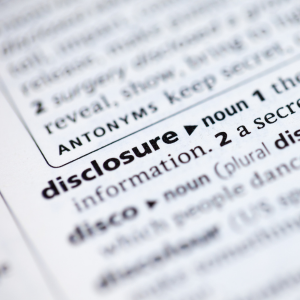
To sell a house in Washington state, you must comply with legal disclosure requirements. According to state law, the seller must disclose any property issues to the real estate professional. Sellers must complete a property disclosure statement under the RCW (Revised Code of Washington) passed by the Washington legislature. This comprehensive seller disclosure form informs potential buyers of all important estate details during the sale process. This disclosure protects buyers and sellers during real estate transactions by providing transparency.
Disclosure of house defects is essential to avoiding legal issues. The seller must disclose the condition of the roof, plumbing, and electrical systems and any history of water damage. Sellers must also disclose any property litigation, as their real estate professional emphasizes. Fulfilling these legal obligations during the sale builds trust and speeds up the transaction.
Legal disclosure requirements have been implemented to streamline transactions. Oversight or intentional failure to disclose could result in legal consequences, including sale rescindment. Transparency in disclosure shows the seller’s honesty. For post-sale disputes, sellers may be liable financially. Thus, a real estate professional familiar with Washington’s legal disclosure requirements should help you navigate this process as law requires. Realtors can also clarify what sellers must disclose about the property before closing. These steps can protect sellers from post-sale disputes in the Washington real estate market.
What You Should Know About Providing a Disclosure Statement to Buyers

Providing a disclosure statement is crucial when selling a house in Washington State. The seller disclosure form is required to inform buyers of property issues. As the seller, you must accurately disclose all relevant information, including structural defects, previous repairs, and site sewage system faults. Buyers need such disclosures to make an informed home purchase. You may wonder what to disclose to meet state requirements. Not providing a complete disclosure statement can lead to legal issues, which no seller wants. Knowing the seller’s disclosure details is essential. Sellers often wonder which disclosures are needed or which issues need attention. Describe any water damage, pest issues, or legal disputes on the property. Avoid transaction issues by being as transparent as possible, sellers. Buyers value honesty; a detailed disclosure statement can improve negotiations and the buying experience. It helps sellers and buyers avoid disputes by setting clear expectations. Knowing about seller disclosure statements can simplify real estate transactions. An accurate disclosure statement helps Washington State buyers and sellers complete a successful transaction. Non-disclosure issues have historically caused court cases, emphasizing the importance of seller disclosures in real estate transactions. To ensure a smooth home selling and buying process, be aware of your legal obligations regarding disclosure.
What Sellers Need to Know About Property Disclosures in Washington State
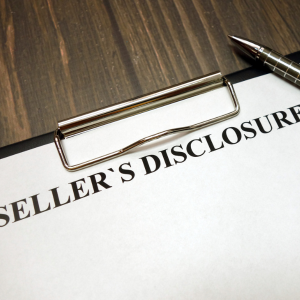
Selling a home in Washington requires sellers to understand property disclosure requirements. Disclosures give buyers vital information about the property they’re considering buying. Sellers in Washington must submit a seller disclosure statement for most real estate transactions. This legal requirement promotes seller-buyer transparency, builds trust, and reduces sales disputes. Sellers must accurately disclose the home’s systems and structures in this disclosure. To sell your home, you must understand Washington state property disclosure laws. The estate must be thoroughly assessed from foundation to roof to provide accurate details about its condition. Report water damage, structural flaws, and malfunctioning systems. Washington real estate transactions require sellers to disclose any significant defects to ensure buyers understand the home’s condition. Visit our site for detailed seller disclosure instructions to cover every aspect of your property before selling. Washington state’s property disclosure system protects both parties by requiring sellers to provide detailed property information. A thorough approach ensures legal compliance and streamlines real estate transactions. Washington estate sellers should familiarize themselves with these obligations to ensure a smooth transition. Knowing what disclosures are needed empowers sellers and follows real estate best practices. When selling your home, ensure you understand your seller disclosure responsibilities and provide potential buyers with complete information about the property. This helps sell your home and maintains your market reputation as a responsible seller.
What Must Be Disclosed When Selling a Home in Washington State?

To ensure a transparent transaction, sellers of homes in Washington State must comply with various disclosure obligations. Washington’s seller disclosure laws aim to inform buyers about property conditions and reduce disputes. Sellers must prepare a detailed Seller Disclosure Statement covering various aspects of the home and its history. This statement must disclose structural conditions, water issues, environmental concerns, and house modifications. As per state laws, failure to disclose essential information can result in legal consequences and delays in the sale process. Realtors and sellers should check seller disclosure documents for accuracy.
Any real estate professional selling a property needs local knowledge. An experienced local professional knows what must be disclosed and any state-specific or regional requirements that may affect the seller disclosure statement. Sellers must also disclose any rights of way, easements, or encroachments that could affect the buyer’s use or enjoyment of the home. To be transparent, disclose any pending litigation or disputes involving the estate or property when selling a home. Addressing these issues upfront ensures the seller meets Washington State’s disclosure requirements and builds buyer-seller trust.
Understanding Washington State home sales disclosure requirements is crucial for a smooth transaction. Sellers should provide as much estate information as possible to avoid issues. Working with a knowledgeable local professional can help ensure state disclosure requirements are met, making the property transaction easier. These efforts comply with laws and improve the Washington State home-selling process.
Essential Disclosures When Selling Your Home in Washington State
Understanding Washington State’s mandatory disclosures is crucial when selling a home. A thorough seller disclosure statement is essential to the real estate transaction. The seller disclosure statement details the property’s condition, alerting buyers to any issues. These disclosures prevent disputes and ensure seller-buyer transparency, which can affect the sale. Sellers in Washington State must disclose water, structural, environmental, and electrical issues. Legal requirements require a thorough and honest disclosure of home conditions. Both the buyer and seller are protected from future lawsuits and complications. Disclosing relevant information can hurt sales in Washington State’s competitive real estate market. The buyer may back out or demand repairs if the property has hidden damages or defects. Thus, a complete and accurate seller disclosure statement builds trust and streamlines the transaction. State law requires sellers to disclose the property’s condition. Understanding these obligations before selling your Washington home benefits everyone. Remember that knowing what to disclose will streamline the selling process. Those entering the Washington State real estate market must know seller disclosure requirements. A thorough disclosure statement is crucial for a successful real estate transaction.
This information applies to Washington and its cities, including Seattle, Vancouver, and Tacoma. For assistance or questions, please call us at (866) 824-3222. You can also visit our website at Sell My House Fast For Cash for more details.


